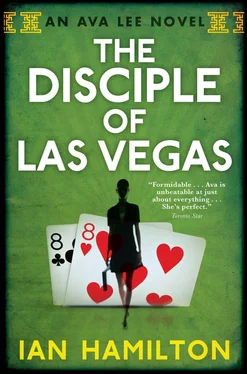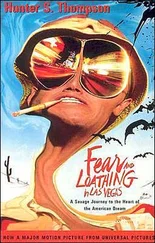Ian Hamilton - The disciple of Las Vegas
Здесь есть возможность читать онлайн «Ian Hamilton - The disciple of Las Vegas» весь текст электронной книги совершенно бесплатно (целиком полную версию без сокращений). В некоторых случаях можно слушать аудио, скачать через торрент в формате fb2 и присутствует краткое содержание. Жанр: Криминальный детектив, на английском языке. Описание произведения, (предисловие) а так же отзывы посетителей доступны на портале библиотеки ЛибКат.
- Название:The disciple of Las Vegas
- Автор:
- Жанр:
- Год:неизвестен
- ISBN:нет данных
- Рейтинг книги:5 / 5. Голосов: 1
-
Избранное:Добавить в избранное
- Отзывы:
-
Ваша оценка:
- 100
- 1
- 2
- 3
- 4
- 5
The disciple of Las Vegas: краткое содержание, описание и аннотация
Предлагаем к чтению аннотацию, описание, краткое содержание или предисловие (зависит от того, что написал сам автор книги «The disciple of Las Vegas»). Если вы не нашли необходимую информацию о книге — напишите в комментариях, мы постараемся отыскать её.
The disciple of Las Vegas — читать онлайн бесплатно полную книгу (весь текст) целиком
Ниже представлен текст книги, разбитый по страницам. Система сохранения места последней прочитанной страницы, позволяет с удобством читать онлайн бесплатно книгу «The disciple of Las Vegas», без необходимости каждый раз заново искать на чём Вы остановились. Поставьте закладку, и сможете в любой момент перейти на страницу, на которой закончили чтение.
Интервал:
Закладка:
When he saw her, Uncle dismissed the man with a little wave of his hand and walked directly over to Ava. The man seemed startled to see her. Then he stared, his face impassive.
“I feel like some noodles,” Uncle said, touching her elbow to guide her towards the restaurant.
They both ordered noodles with har gow, traditional shrimp dumplings. There was a delicious aroma in the air that Ava couldn’t identify. “Snow pea tips fried in garlic,” Uncle said when she asked. “It is too early to eat them. They attack my bowels.”
As usual, he ate far more quickly than she did. She always wondered if his table manners were an indication of his true internal state, a contrast to the calm, placid exterior he showed to the world. “Who was that man you were talking to?” she asked when he had finished eating.
The question seemed to catch him off guard, and he closed his eyes briefly before answering. “He worked for me in Fanling years ago. Now he runs Mong Kok,” he said. Before she could ask more, the boarding call came for the flight and Uncle slid out of his chair.
They walked to the gate and found long, disorganized lines of diminutive Filipino women carrying as much baggage as airline rules would allow. “It is that time of year,” Uncle said. “Flights to Asia and to Manila are cheap, so all the domestics and nannies travel home now.”
Ava knew the ritual. She and Marian had had a Filipina yaya, or nanny, until they went to Havergal College for high school. Every two or three years Yaya would buy a couple of balikbayans — boxes the size of small coffins — and load them with T-shirts, running shoes, and canned goods to carry back with her to the Philippines.
“How many are there in Hong Kong these days?” she asked.
“More than a hundred thousand, I think. On Sundays they go to Central or Victoria Park or to the Hong Kong Cultural Centre to socialize. I do not think Lourdes has missed a Sunday in ten years.”
“Amazing women.”
Uncle stared at the knot of people crowding around the boarding gate. “The Philippines would collapse economically without them. I read that there are about eight million overseas workers, and they remit money every month. If that is not the country’s largest source of income, I do not know what is.”
Uncle and Ava strolled past the lineup of people waiting impatiently to board the plane and showed their passports and first-class tickets to the Cathay Pacific attendant. When they boarded the plane, they were greeted by two attractive young flight attendants in cherry-red uniforms, who directed them to their seats. As Uncle settled into his, Ava noted that his feet just skimmed the floor.
As soon as the plane reached its flying altitude, Uncle eased his seat back. But before he could close his eyes, Ava asked, “Uncle, is Tommy Ordonez from Wuhan?”
“Not everyone we do business with is from Wuhan,” he said with a small smile. “He is from Qingdao.”
“And Ordonez is not his family name.”
“No, his real name is Chew Guang. He took the Filipino name after he started doing serious business in the islands. He is what they call a Chinoy, a Chinese using a Filipino name.”
Ava wasn’t surprised by the name change. All across Asia, in countries such as Indonesia, Malaysia, Thailand, and the Philippines, economies were often controlled by resident Chinese. It created resentment among the indigenous populations, and in times of turbulence the Chinese were often targets of physical violence and looting. Changing their names was one way of trying to blend in, to disguise themselves from the xenophobes.
“Was he born in Qingdao?” Ava asked. She knew that Chinese people say they are from a particular city or province even if three generations removed.
“Yes, the eldest child in a family that includes two brothers and a sister. His father was an assistant brewmaster at the Tsing Tao brewery, and Chew apprenticed there when he was a young teenager. He was obviously smart and a very hard worker, because by the time he turned twenty-two he had been dispatched to the Philippines as an assistant brewmaster in his own right.”
“How long before he went out on his own?”
“About three years. He started at a small brewery with a brand he called Philippine Gold. The beer was not of the best quality but it was cheap, and cheap worked. Within five years Chew Guang had the number-one beer in the islands. It was around this time that he changed his name to Tommy Ordonez and began — with help from the local Chinese, most of whom also had Filipino names — to expand and diversify. Chang Wang joined him then.”
“And why did Chang keep his name?”
“He has no public visibility. He is the man behind the scenes, an operator, the key advisor, the one who helps Ordonez plot his business strategies and follow through on execution. He is a good man to have as a friend, and a monster when he is an enemy.”
“Apparently Ordonez’s brothers kept their family name as well.”
“There was no reason for them not to. They live in places where it does not matter. Philip, the one in Canada — the one who has the problems — is the youngest. The other one, David, lives in Hong Kong and is the point man for the Chinese market. He finds homes for their cheap booze and cigarettes.”
“From what I’ve read, the business isn’t just beer and cigarettes.”
“Not anymore. They own banks, trucking and cold storage operations, and the largest ocean freight business in the Philippines. But it is the beer and cigarettes that underpin it all. In China they have moved from exports to manufacturing, and that is where I helped — getting them the approvals to build cigarette factories and distilleries.”
“There is no home for those products in Canada.”
“Of course not. Canada, from what Chang told me, is a source of goods and raw materials that they can sell into Asian markets. They own two jade mines, a host of ginseng farms, and a quasi-legal abalone fishing operation, and they have bought thousands of acres of timber rights. They also own a trading operation that ships scrap metal, chicken feet, cheap cellphones, and a variety of chemicals to China. The Chews are not fussy about what they buy and sell.”
“But the problem they have involves real estate.”
“It does. They have been building up a real estate portfolio, mostly in and around Vancouver, where Philip lives. Mainly apartment buildings, shopping centres, that kind of thing.”
“It sounds like a very big business,” Ava said.
Uncle shrugged. “Ordonez is worth at least five billion U.S. dollars, but he and Chang still run the company as if it were a two-man show. They do not trust anyone other than themselves. Even Ordonez’s two brothers have limited authority, and now with their problems in Canada, that is not likely to change anytime soon. I asked Chang how they manage to keep on top of everything, and he laughed and said, ‘Fear.’ Ordonez is known inside the business as the Knife. Chang is the Sledgehammer.”
“Nice.”
“There is nothing nice about either of them,” Uncle said, closing his eyes. “But most businesses are not built by nice people. You need a combination of greed, drive, brains, and paranoia. Between them, Chang and Ordonez have those bases covered.”
(3)
A tall Filipino man in a grey suit was standing just past the gangway at Manila’s Ninoy Aquino International Airport, holding a sign that read mr. chow. Standing next to him was a senior Customs official.
Uncle identified himself. The man in the grey suit nodded and introduced himself as Joseph Moreno.
“We’ll take you through Customs,” Moreno said. “Do you have checked bags?”
“Yes,” Uncle said.
Читать дальшеИнтервал:
Закладка:
Похожие книги на «The disciple of Las Vegas»
Представляем Вашему вниманию похожие книги на «The disciple of Las Vegas» списком для выбора. Мы отобрали схожую по названию и смыслу литературу в надежде предоставить читателям больше вариантов отыскать новые, интересные, ещё непрочитанные произведения.
Обсуждение, отзывы о книге «The disciple of Las Vegas» и просто собственные мнения читателей. Оставьте ваши комментарии, напишите, что Вы думаете о произведении, его смысле или главных героях. Укажите что конкретно понравилось, а что нет, и почему Вы так считаете.









